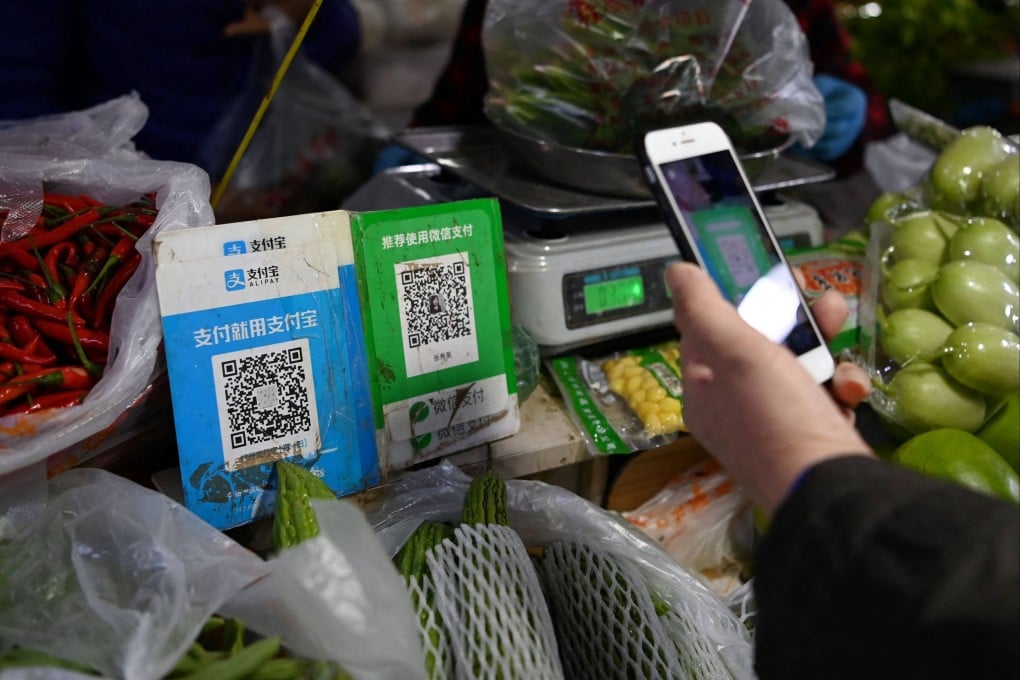China back-pedals on plan to ban personal QR codes for business payment receipts after backlash
- On Tuesday, the Payment and Clearing Association said merchants can continue to use personal QR codes for business transactions after the March 1 deadline
- Alipay and WeChat Pay confirmed individuals can continue to use personal QR codes to receive payments, but both offered the option of upgrading to a business one

China has back-pedalled on a plan to ban merchants from using personal QR codes to receive payments, maintaining the status quo in which millions of street vendors, small businesses and even beggars rely on the simple scanning of a bar code to receive money.
It marked a rare retreat by the People’s Bank of China over its control of Alipay and WeChat Pay, which jointly control over 90 per cent of the country’s mobile payments market, after the proposed ban on using personal QR codes to receive money sparked controversy.
The widespread adoption of QR codes for quick and convenient payments was once held up as a sign of China’s progress over the West in developing a cashless society. QR codes accounted for over 90 per cent of China’s mobile payments in 2021, according to a January survey by state-owned UnionPay.
According to the People’s Bank of China, lack of sufficient oversight meant the QR payment method was also a loophole for money laundering and other illegal activities. Since 2018, the central bank has capped the daily limit for payments via a “static QR code” at 500 yuan (US$79).
However, when the central bank introduced a rule last October that would have mandated the use of business QR codes for merchants effective March 1, it caused a backlash because the business versions require paperwork and are subject to higher commission fees.
Personal QR codes, in contrast, are widely used for unofficial economic activities, such as rickshaw riders ferrying passengers around town, farmers selling their own produce at local wet markets, and street hawkers who never applied for an official business license.
In one case reported in 2018, The Wall Street Journal highlighted a Beijing-based beggar who used a WeChat QR code to encourage people to give him handouts.
The change proposed by the central bank was unpopular because it was seen as imposing inconvenience and higher cost on the most vulnerable groups in the economy.